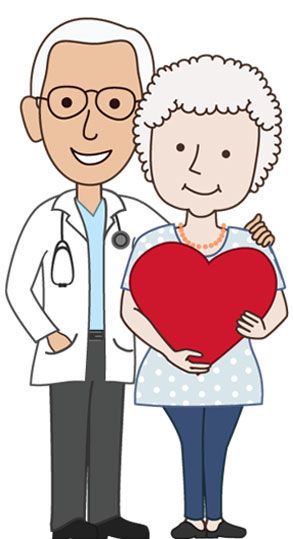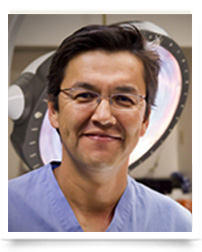Find Trusted
Heart Valve Surgeons
Search 1,500 patient-recommended surgeons

Find Heart Valve Surgeons
Search 1,500 patient-recommended surgeons
Start Search Here
-
Search By Patient Reviews
By Patient Reviews
- »Dr. Luis Castro (252)
- »Dr. Gyu Gang (220)
- »Dr. Patrick McCarthy (206)
- »Dr. Takeyoshi Ota (190)
- »Dr. Vaughn Starnes (154)
- »Dr. Justin Schaffer (114)
- »Dr. Marc Gillinov (108)
- »Dr. Robert Smith II (90)
- »Dr. Husam Balkhy (86)
- »Dr. Joanna Chikwe (83)
- »Dr. William Brinkman (81)
- »Dr. David Adams (79)
- »Dr. Katherine Harrington (77)
- »Dr. S. Chris Malaisrie (70)
- »Dr. Ismail El-Hamamsy (69)
- »Dr. Mario Castillo-Sang (59)
- »Dr. Richard Shemin (57)
- »Dr. Alfredo Trento (51)
- »Dr. Lars Svensson (46)
- »Dr. Timothy George (45)
- »Dr. Craig Baker (41)
- »Dr. Julius Ejiofor (41)
- »Dr. Hiroo Takayama (40)
- »Dr. Junaid Khan (37)
- »Dr. Robert Saeid Farivar (37)
- »Dr. Eric Roselli (35)
- »Dr. Isaac George (34)
- »Dr. Lee Hafen (33)
- »Dr. Anthony Zaki (32)
- »Dr. Kelley Hutcheson (30)
- »Dr. Joseph Bavaria (28)
- »Dr. Valluvan Jeevanandam (27)
- »Dr. Fardad Esmailian (25)
- »Dr. David Moore (24)
- »Dr. Douglas Johnston (22)
- »Dr. Christopher Burke (21)
- »Dr. Erhan Guler (21)
- »Dr. Michael Bowdish (18)
- »Dr. Nicholas Smedira (15)
- »Dr. Kevin Landolfo (15)
- »Dr. Duc Thinh Pham (15)
- »Dr. Raymond Singer (14)
- »Dr. Edward Soltesz (14)
- »Dr. Michael Tong (14)
- »Dr. Kenneth McCurry (13)
- »Dr. Vinay Badhwar (13)
- »Dr. Eric Weiss (13)
- »Dr. Patrick Rudersdorf (12)
- »Dr. Michael Acker (11)
- »Dr. Kevin Hodges (10)
-
Search By State
By State
- »Alabama
- »Alaska
- »Arizona
- »Arkansas
- »California
- »Colorado
- »Connecticut
- »Delaware
- »District Of Columbia
- »Florida
- »Georgia
- »Hawaii
- »Idaho
- »Illinois
- »Indiana
- »Iowa
- »Kansas
- »Kentucky
- »Louisiana
- »Maine
- »Maryland
- »Massachusetts
- »Michigan
- »Minnesota
- »Mississippi
- »Missouri
- »Montana
- »Nebraska
- »Nevada
- »New Hampshire
- »New Jersey
- »New Mexico
- »New York
- »North Carolina
- »North Dakota
- »Ohio
- »Oklahoma
- »Oregon
- »Pennsylvania
- »Puerto Rico
- »Rhode Island
- »South Carolina
- »South Dakota
- »Tennessee
- »Texas
- »Utah
- »Vermont
- »Virginia
- »Washington
- »West Virginia
- »Wisconsin
- »Wyoming
-
Search By Country
By Country
- »Argentina
- »Australia
- »Austria
- »Bosnia-Herzegovina
- »Brazil
- »Bulgaria
- »Canada
- »Colombia
- »France
- »Germany
- »Greece
- »Hungary
- »India
- »Ireland
- »Israel
- »Italy
- »Japan
- »Kuwait
- »Lebanon
- »Lithuania
- »Malaysia
- »Mauritius
- »Mexico
- »Monaco
- »New Zealand
- »Pakistan
- »Portugal
- »Romania
- »Russian Federation
- »Singapore
- »South Africa
- »Spain
- »Sri Lanka
- »Switzerland
- »Thailand
- »Turkey
- »United Kingdom
- »Yemen
-
Our Featured Surgeon
![Featured Heart Valve Surgeon]()
Our Featured Surgeon
Dr. Luis Castro
Dr. Luis Castro is a world-renowned cardiac surgeon that has performed over 5,000 heart valve operations that include minimally-invasive techniques.
-
Recommend Your Surgeon
![Recommend Your Heart Surgeon]()
Recommend Your Surgeon
Did you have a great surgical result with your heart valve surgeon? Ready to help other patients and family members learn about your surgeon?

